Israeli Army Says Hit Hezbollah Arms Facilities

The Israeli military said Thursday it hit Hezbollah weapons production facilities in the group's south Beirut bastion, in some of the fiercest strikes on the area since the Lebanon war began.
At least 17 raids levelled six buildings, according to Lebanon's official National News Agency, with a huge ball of fire enveloped in a tower of smoke soaring into the night sky.
Israel is fighting Iran-backed Palestinian militant group Hamas in Gaza and Hezbollah in Lebanon and has vowed to retaliate against Iran for an October 1 missile attack.
The war in Lebanon began late last month, nearly a year after Hezbollah began low-intensity cross-border fire into Israel in support of Hamas following its October 7, 2023 attack.
"Overnight, the IAF (air force) conducted intelligence-based strikes on several weapons storage and manufacturing facilities belonging to the Hezbollah terrorist organisation" in the southern suburbs of the capital, the Israeli military said.
It said that it had "struck more than 160 Hezbollah targets over the past day, including infrastructure sites across Lebanon".
US Secretary of State Antony Blinken arrived on Thursday in Qatar, a key mediator in efforts to end the war in Gaza, following visits to Israel and Saudi Arabia.
On his 11th trip to the region since the start of the Gaza war, Blinken told Israel to avoid further escalation with Iran, and is seeking headway with Saudi Arabia on a normalisation deal with Israel.
But with wars raging in Lebanon and Gaza, there was little sign that Blinken's latest trip would secure a ceasefire.
In Lebanon, the NNA called the nighttime raids on the southern suburbs "the most violent in the area since the beginning of the war".
Six buildings were destroyed around the neighbourhood of Laylaki, the NNA said, including a residential complex hit by four Israeli strikes that caused "a large fire".
AFPTV footage showed a massive explosion followed by smaller blasts after the Israeli army issued an Arabic-language evacuation warning for the area, where Hezbollah holds sway.
There was no warning, however, for a strike that hit the nearby Jnah neighbourhood, killing one person and wounding five, according to Lebanon's health ministry.
In south Lebanon, Israeli strikes pounded Tyre on Wednesday, leaving swaths of its centre in ruins and sparking a new exodus from the once vibrant coastal city.
"The whole city shook," said resident Rana, who fled to the seafront after the Israeli military issued an evacuation warning.
Bilal Kashmar of Tyre's disaster management unit said seven buildings were levelled and more than 400 apartments damaged.
"You could say that the entire city of Tyre is being evacuated," he told AFP.
Black smoke was seen rising from several neighbourhoods, with some areas just 500 metres (550 yards) from the city's ancient ruins.
UNESCO said it was "closely following" the conflict's impact on Tyre's World Heritage site.
The Gaza war began with Hamas's October 7, 2023 attack on Israel, which resulted in the deaths of 1,206 people, mostly civilians, according to an AFP tally of Israeli official figures.
Israel's retaliatory offensive has killed 42,792 people in Gaza, the majority civilians, according to figures from the Hamas-run territory's health ministry which the UN considers reliable.
Blinken said Israel had "achieved most of its strategic objectives" in Gaza and should now aim for lasting success.
"Now is the time to turn those successes into enduring, strategic success," he said after meetings with Israeli Prime Minister Benjamin Netanyahu and other top officials.
Addressing Israel's pledge to retaliate for Iran's October 1 attack, he said: "It's also very important that Israel respond in ways that do not create greater escalation."
Speaking at a summit in Russia, Iran's President Masoud Pezeshkian urged BRICS nations to help "end the war" in Gaza and Lebanon.
A Hamas official said a delegation led by a top official in the movement arrived in Moscow for talks.
In Gaza, tens of thousands of civilians were trapped in the aid-starved north, where Israel launched a major air and ground assault this month.
Blinken acknowledged "progress" on aid for Gaza but said more needed to be done.
With winter approaching, displaced Gazans fear the cold.
Ahmad al-Razz said he sewed sacks together to make his tent on the beach near Deir el-Balah.
"We are freezing every night because we are right by the sea, and we have no blankets or coverings to keep us warm," the 42-year-old said.
The World Health Organization said it was forced to postpone the last phase of a polio vaccination drive in Gaza due to "intense bombardment" in the north.
With Hamas weakened but not crushed by a year of war in Gaza, Israel ramped up its strikes on Hezbollah strongholds in Lebanon and sent in ground forces on September 30.
The war in Lebanon has killed at least 1,580 people since September 23, according to an AFP tally of Lebanese health ministry figures, though the real number is likely to be higher due to gaps in the data.
On Wednesday, Hezbollah said it had fired rockets into several areas of Israel, including a salvo that forced Israeli troops to "retreat behind the frontier" after they attempted to infiltrate from the outskirts of the south Lebanon village of Aitarun.
The Israeli army said air raid sirens sounded across central Israel after "projectiles" were fired from across the Lebanese border.
Netanyahu said on Wednesday that Israel had uncovered that Hezbollah had been plotting an "attack even greater than on October 7" involving jeeps, missiles and underground tunnels.
"They were planning an invasion," the premier told French broadcasters CNews and Europe 1.
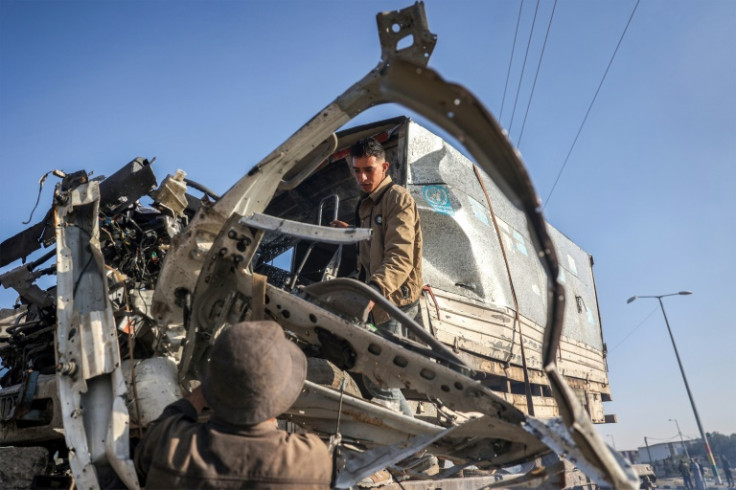
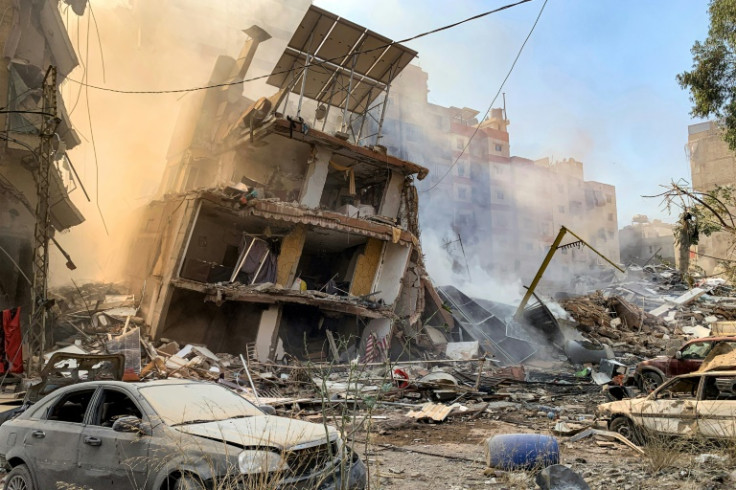
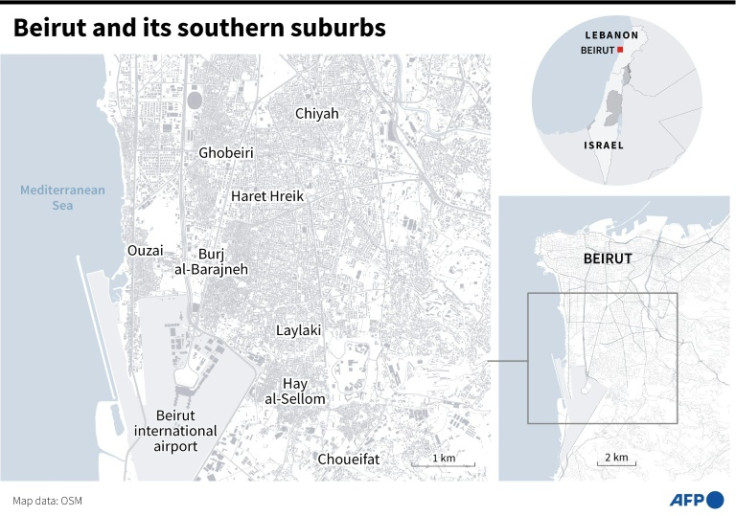
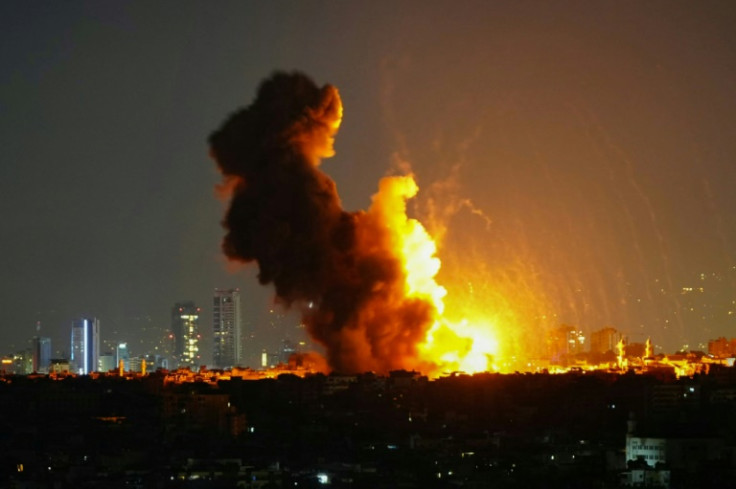
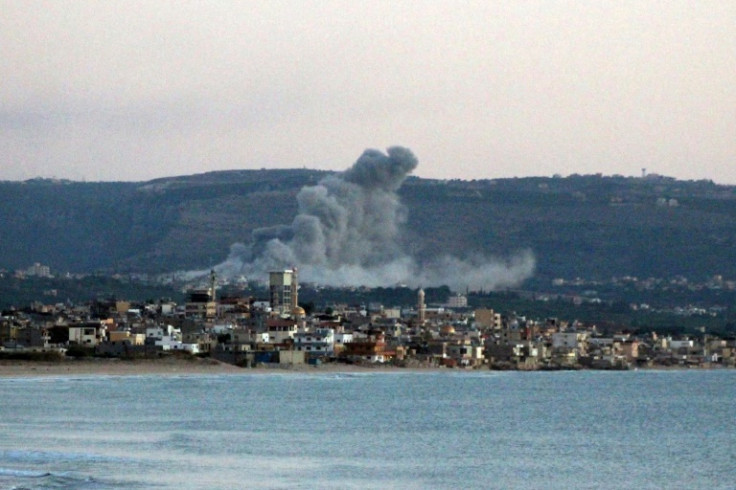
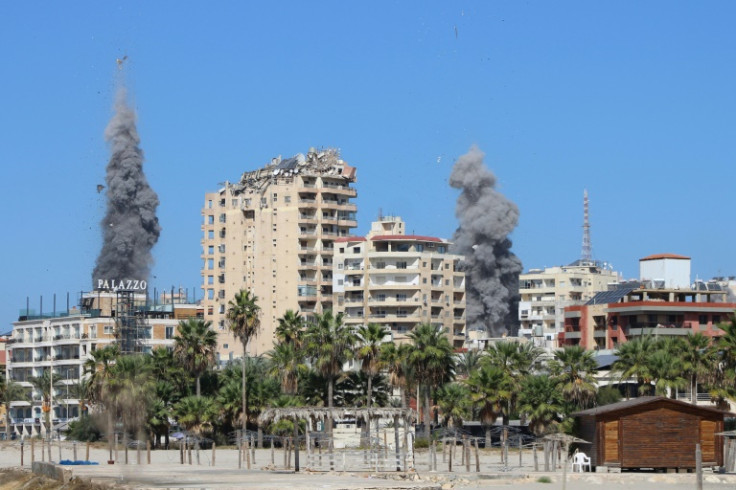
© Copyright AFP 2025. All rights reserved.





















